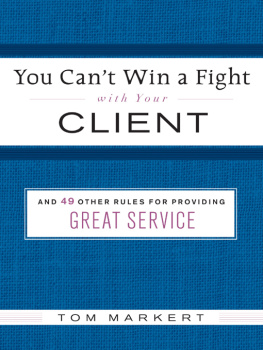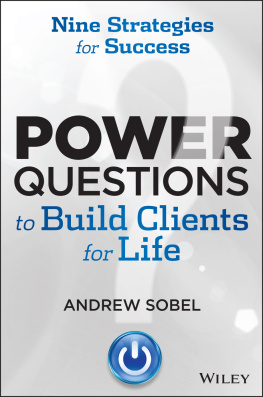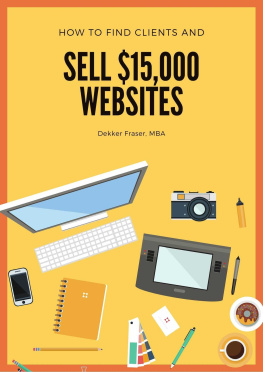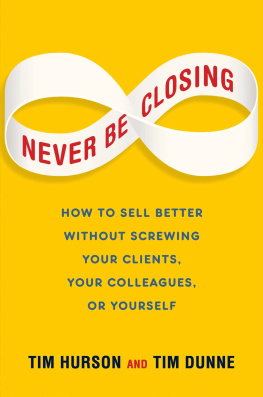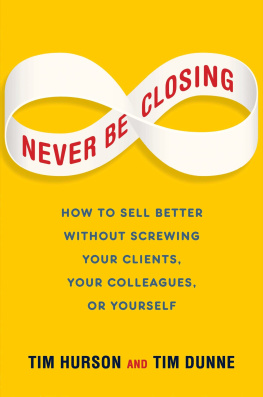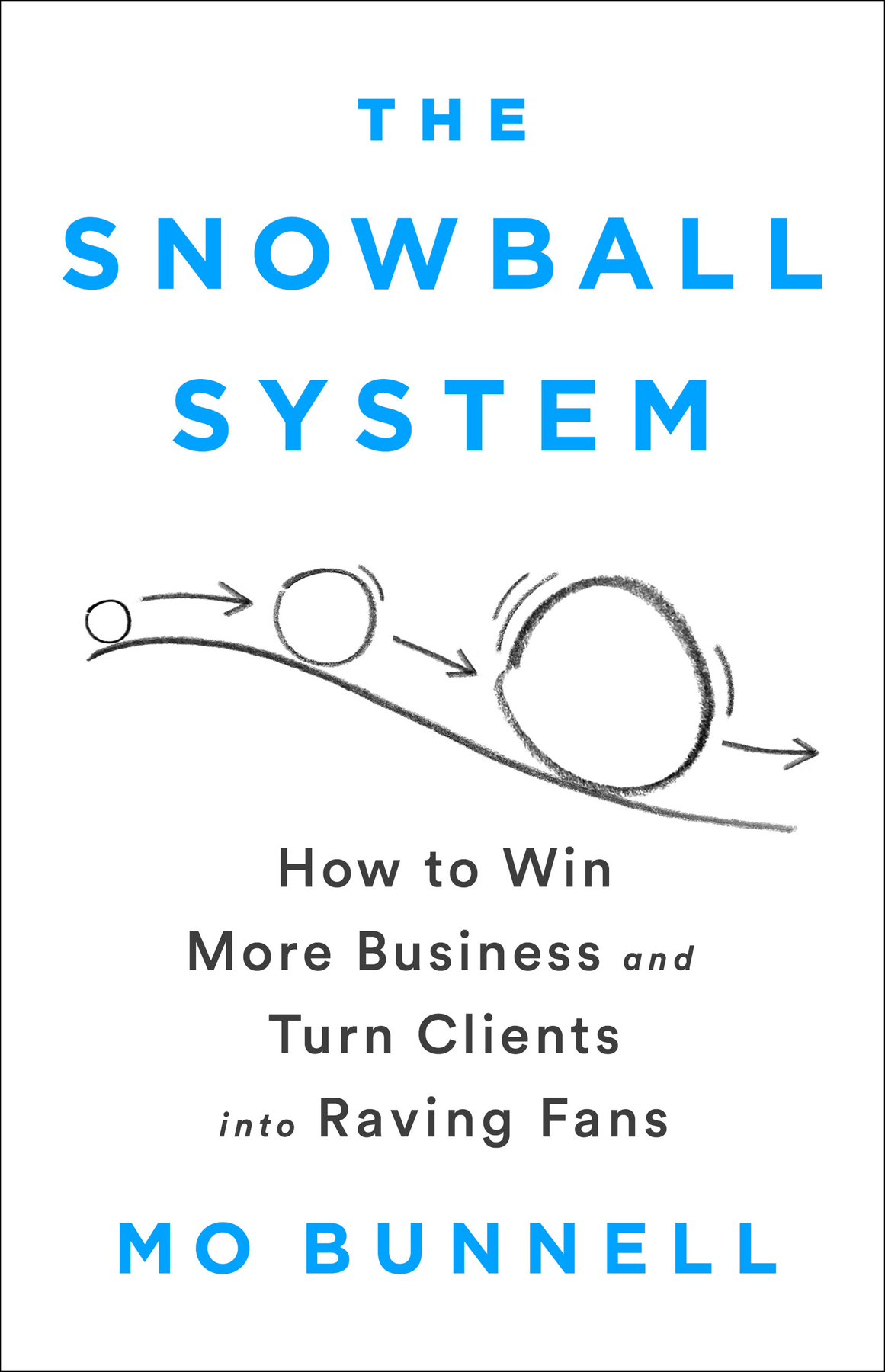Copyright 2018 by Mo Bunnell
HBDI, Whole Brain Thinking, Herrmann Brain Dominance Instrument, and Whole Brain Model are trademarks and registered trademarks of Herrmann Global, LLC. Text and graphics, including graphical trademarks such as the Whole Brain graph and color scheme, are copyrighted material of Herrmann Global, LLC. No part of these printed or electronic materials may be reproduced or utilized in any form or by any means, electronic or mechanical, including photocopying, recording, or any information storage and retrieval system, without prior written agreement from Herrmann Global, LLC. 2018 Herrmann Global, LLC
Hachette Book Group supports the right to free expression and the value of copyright. The purpose of copyright is to encourage writers and artists to produce the creative works that enrich our culture.
The scanning, uploading, and distribution of this book without permission is a theft of the authors intellectual property. If you would like permission to use material from the book (other than for review purposes), please contact permissions@hbgusa.com. Thank you for your support of the authors rights.
PublicAffairs
Hachette Book Group
1290 Avenue of the Americas, New York, NY 10104
www.publicaffairsbooks.com
@Public_Affairs
First Edition: September 2018
Published by PublicAffairs, an imprint of Perseus Books, LLC, a subsidiary of Hachette Book Group, Inc. The PublicAffairs name and logo is a trademark of the Hachette Book Group.
The publisher is not responsible for websites (or their content) that are not owned by the publisher.
Library of Congress Cataloging-in-Publication Data
Names: Bunnell, Mo, author.
Title: The snowball system : how to win more business and turn clients into raving fans / Mo Bunnell.
Description: First edition. | New York, NY : PublicAffairs, an imprint of Perseus Books, LLC, [2018] | Includes bibliographical references and index.
Identifiers: LCCN 2018017032| ISBN 9781610399609 (hardcover) | ISBN 9781610399593 (ebook) | ISBN 9781549142116 (downloadable audio)
Subjects: LCSH: Relationship marketing. | Customer relationsManagement.|
Technological innovationsManagement.
Classification: LCC HF5415.55 .B86 2018 | DDC 658.8/12--dc23
LC record available at https://lccn.loc.gov/2018017032
ISBNs: 978-1-61039-960-9 (HC), 978-1-61039-959-3 (ebook), 978-1-54914-211-6(downloadable audio)
E3-20180827-JV-PC
To Becky, for putting up with my boundless curiosity while guiding me to be my best self.
B ELIEVE IT OR not, you are a salesperson. Dont think so? Nowadays there are more of us than you might think, though we go by different nameslawyers, consultants, marketers, and accountants as well as wedding photographers, Brazilian jiujitsu instructors, graphic designers, and chiropractors. Even account managers that manage big, ongoing relationships are in sales, managing existing work and on the hook for expanding it. If youre good at doing something and need paying clients to do it for, call it sales, call it business developmentwhatever you likewelcome to the club. This book is for you. Every day I teach people like you how to sell their serviceswithout selling their souls.
Youre reading this book because you want your business to grow. You want to win more clients and do more business with the clients you already have. You want more of the right work for the right money with the right clients. Im going to show you a proven system for making all this happen and then making it a habit for life.
Picture twelve senior partners at a prestigious professional services firm sitting around a round table. Like you, theyre just getting started learning this really awesome system. One of my companys facilitators asks the first question:
How many hours have you spent building your expertise?
After a short pause one of the partners raises his hand.
Fifty thousand. Our facilitator raises an eyebrow. The man squints a little doing the math in his head: I work three thousand hours a year, and Ive been doing this fifteen years. Throw in my degrees, and youre easily at fifty K.
Great, the facilitator replies. Now, how many hours have you invested in learning business development? You knowgenerating leads, turning prospects into clients, developing strong client relationships that lead to more and more work.
No pause at all this time: Seven. Including the five so far today.
Everyone at the table laughs uncomfortably. The truth hurts.
That said, maybe youre not starting from scratch. Maybe youve read some books and established effective business development techniques that have helped you get where you are today. Thats great. But however much you already understand about the principles of effective business development, the only gap that truly matters is the one between knowledge and action. Be honest: In a typical workday how many hours do you actually spend growing your business?
Add it up. Ill wait.
If youre anything like the thousands of skilled client-facing professionals Ive trained over the last decade, the answer is: less than an hour.
Its okay. Dont be too hard on yourself. This is a universal problem. We are not very good at balancing the time we spend doing the work against the time we spend drumming up more.
In an earlier era a lackadaisical approach to growing your business worked fine. If you did good work, the phone would ring. There were fewer local experts in most fields, and clients were loyal. Youd take a few people to lunch each week, send out those holiday cards every year, and, boom, a steady roster of happy clients would be yours to serve.
Today, clients are savvier. They put more work out to bid or do in-depth comparative research online. The marketplace is flooded with expertise.
The result? Your hard-won knowledge is only table stakes. Today, we are seller-expert hybrids responsible for (1) meeting the needs of current clients, (2) developing those relationships to deliver more work, and (3) attracting and retaining new clients. Organizations expect their experts to fill their own pipelines with a steady flow of new work. Client relationship skills matter more than ever.
We need to manage doing the work while also convincing people to let us do the work for them. That doesnt even include the time it takes to reply to hundreds of emails a day, attend interminable meetings, and file detailed expense reports. If youre anything like most of the people I train, right now youre probably thinking, I didnt become a _______ to sell myself! True. But like it or not, once your expertise and professionalism elevate you to a certain level, your ability to grow client relationships largely determines your success. Your capacity for business development will only increase in importance as your career progresses. To rise, experts need to sell.
From the other side, professional salespeople are finding it more and more necessary to develop a foundation of strategic thinking and insights around the products and services they sell. Gone are the days when you could smile-and-dial in the morning and golf in the afternoon.
Experts need to understand how to sell their own services, and salespeople need to understand the services theyre trying to sell. Ultimately, service and selling are becoming one craft, one universal set of skills and practices around finding people who need your help and then helping them as effectively as possible. The question is: Are you going to grow your business at the same high level of skill and professionalism you display in your own area of expertise?


